The Gigginstown herd is being driven by two things; purchasing of top-quality foundation stock and the entrepreneurial herd owner and Ryanair chief executive Michael O’Leary.
Three years after being promoted to chief executive of Ryanair, O’Leary took on duplicating the low-cost model run by the airline to a farming setup. So some 20 years ago, the Gigginstown Angus herd prefix was born.
Speaking with long-term farm manager Joe O’Mahony, he tells me how O’Leary chose the breed, as he was looking for cattle that were easy to work with, but more importantly suit the system already in place on farm for the highly successful bloodstock enterprise.
“The Angus suit the system.
They’re quiet around the horses and they mature fast off grass.
At the time, the reputation the breed had in America for eating quality wasn’t really showing over here yet, so he saw the potential from that side as well,” Joe adds.
When it came to sourcing foundation stock, the farm spent both time and money trying to invest in the best genetics available.
This search led O’Leary, along with stockman at the time Gerry Smyth, to Canada, purchasing champions from Edmonton and Regina shows, as well as selecting foundation females from the top herds in western Canada.
In total, 40 females, along with two stock bulls, were selected for importation to the Westmeath-based farm.
The herd began showing when it was established, but as numbers and farm size increased, available time decreased, leading to a halt on any unnecessary business.
However, in a short period, the herd managed to secure an all-Ireland title with imported stock bull Ebon Hill Extra Gold, a bull who would later go on to breed another all-Ireland champion, Glendara Walnut. The shows had done their job, no longer would the Gigginstown name only be known for horses but now also Angus cattle.
As numbers increased, so too did the need for an outlet for these outcross genetics. So after five years, the decision to run an annual on-farm sale was put into action.
While slow to take off at first, as confidence grew in Gigginstown genetics, so too did the crowd.
The last number of sales have been an outstanding success, with 100% clearances reported at the last two consecutive sales.
Such are the crowds that at the 2017 sale, O’Leary joked about charging for parking to deter tyre kickers.
The herd now amounts to over 200 cows and followers, with the annual sale standing as the highlight of the year. This sale happens the Saturday before Easter Monday each year, and, as Joe describes, sets a benchmark for the private sales that follow.
“The sale comprises of about 25 bulls and 25 heifers. The annual sale establishes prices for the private off-farm sales later in the year. In total, we sell about 70 bulls a year, with about 90% of these going for pedigree breeding. We would generally sell another batch of heifers for export also and retain 15 to 20 for our own replacements," Joe said.
Scottish breeding
With such big numbers running, large emphasis is placed on sire selection. In total, six bulls are used by the herd and these include Scottish-bred Rawburn Rommel son Idvies Euxand, former Irish calf show male champion Friarstown Lord Big, Canadian embryo-bred Cashelane Marty, Rawburn Lord Rocket son Tara Bobbie, Friarstown Empire from the Ellen Erica line and homebred Gigginstown House Vagabond.
While Canadian import Ebon Hill Extra Gold stands as the most influential to date, the herd purchased a number of other bulls which left their mark, including Penguin Mr Elevate at Stirling in 2008 for a whopping 32,000gns and the three-time all-Ireland champion Rosemead Karona.
While Joe sees no massive changes in the farm setup, he does see future sales deviating from what the herd has previously experienced.
“The markets we have now we are able to fill, so I don’t think there will be any big changes in numbers going forward. However, we will be paying more attention to calving figures, to produce more bulls for the dairy market.
“At the moment we’re about 70% sales to suckler farmers, with 30% to dairy farmers, but the dairy sector is increasing, so it’s better to have more bulls to suit this market.”
This Sunday, Gigginstown Angus herd is one of the two Irish herd visits as part of the World Angus Forum.
The forum, which welcomes delegates from around the world, only comes to Ireland and the UK about once every 40 years.
Read more
The flying stockman - Michael O'Leary interview
The Gigginstown herd is being driven by two things; purchasing of top-quality foundation stock and the entrepreneurial herd owner and Ryanair chief executive Michael O’Leary.
Three years after being promoted to chief executive of Ryanair, O’Leary took on duplicating the low-cost model run by the airline to a farming setup. So some 20 years ago, the Gigginstown Angus herd prefix was born.
Speaking with long-term farm manager Joe O’Mahony, he tells me how O’Leary chose the breed, as he was looking for cattle that were easy to work with, but more importantly suit the system already in place on farm for the highly successful bloodstock enterprise.
“The Angus suit the system.
They’re quiet around the horses and they mature fast off grass.
At the time, the reputation the breed had in America for eating quality wasn’t really showing over here yet, so he saw the potential from that side as well,” Joe adds.
When it came to sourcing foundation stock, the farm spent both time and money trying to invest in the best genetics available.
This search led O’Leary, along with stockman at the time Gerry Smyth, to Canada, purchasing champions from Edmonton and Regina shows, as well as selecting foundation females from the top herds in western Canada.
In total, 40 females, along with two stock bulls, were selected for importation to the Westmeath-based farm.
The herd began showing when it was established, but as numbers and farm size increased, available time decreased, leading to a halt on any unnecessary business.
However, in a short period, the herd managed to secure an all-Ireland title with imported stock bull Ebon Hill Extra Gold, a bull who would later go on to breed another all-Ireland champion, Glendara Walnut. The shows had done their job, no longer would the Gigginstown name only be known for horses but now also Angus cattle.
As numbers increased, so too did the need for an outlet for these outcross genetics. So after five years, the decision to run an annual on-farm sale was put into action.
While slow to take off at first, as confidence grew in Gigginstown genetics, so too did the crowd.
The last number of sales have been an outstanding success, with 100% clearances reported at the last two consecutive sales.
Such are the crowds that at the 2017 sale, O’Leary joked about charging for parking to deter tyre kickers.
The herd now amounts to over 200 cows and followers, with the annual sale standing as the highlight of the year. This sale happens the Saturday before Easter Monday each year, and, as Joe describes, sets a benchmark for the private sales that follow.
“The sale comprises of about 25 bulls and 25 heifers. The annual sale establishes prices for the private off-farm sales later in the year. In total, we sell about 70 bulls a year, with about 90% of these going for pedigree breeding. We would generally sell another batch of heifers for export also and retain 15 to 20 for our own replacements," Joe said.
Scottish breeding
With such big numbers running, large emphasis is placed on sire selection. In total, six bulls are used by the herd and these include Scottish-bred Rawburn Rommel son Idvies Euxand, former Irish calf show male champion Friarstown Lord Big, Canadian embryo-bred Cashelane Marty, Rawburn Lord Rocket son Tara Bobbie, Friarstown Empire from the Ellen Erica line and homebred Gigginstown House Vagabond.
While Canadian import Ebon Hill Extra Gold stands as the most influential to date, the herd purchased a number of other bulls which left their mark, including Penguin Mr Elevate at Stirling in 2008 for a whopping 32,000gns and the three-time all-Ireland champion Rosemead Karona.
While Joe sees no massive changes in the farm setup, he does see future sales deviating from what the herd has previously experienced.
“The markets we have now we are able to fill, so I don’t think there will be any big changes in numbers going forward. However, we will be paying more attention to calving figures, to produce more bulls for the dairy market.
“At the moment we’re about 70% sales to suckler farmers, with 30% to dairy farmers, but the dairy sector is increasing, so it’s better to have more bulls to suit this market.”
This Sunday, Gigginstown Angus herd is one of the two Irish herd visits as part of the World Angus Forum.
The forum, which welcomes delegates from around the world, only comes to Ireland and the UK about once every 40 years.
Read more
The flying stockman - Michael O'Leary interview





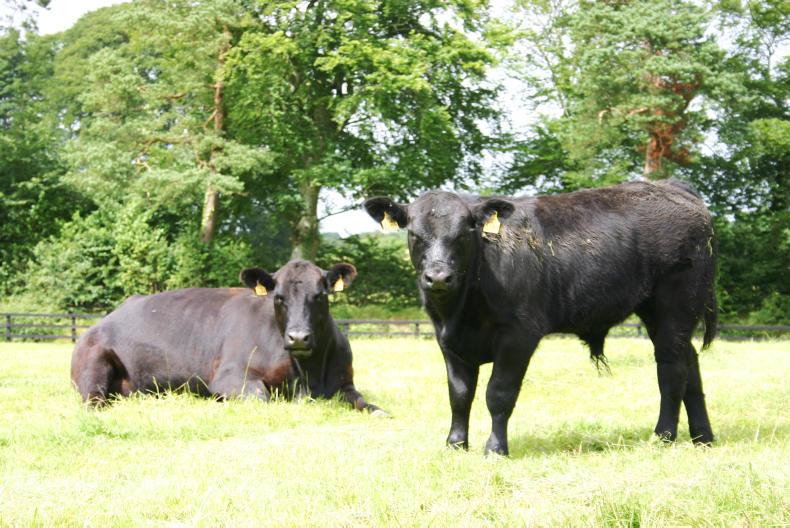
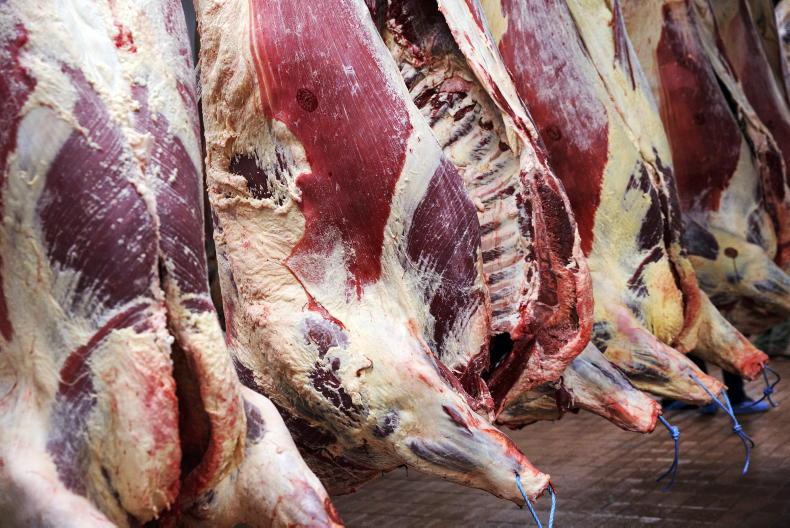

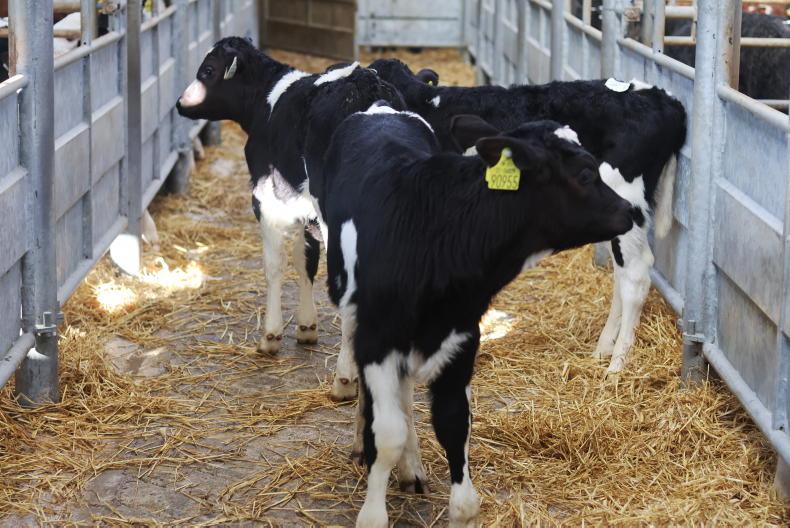
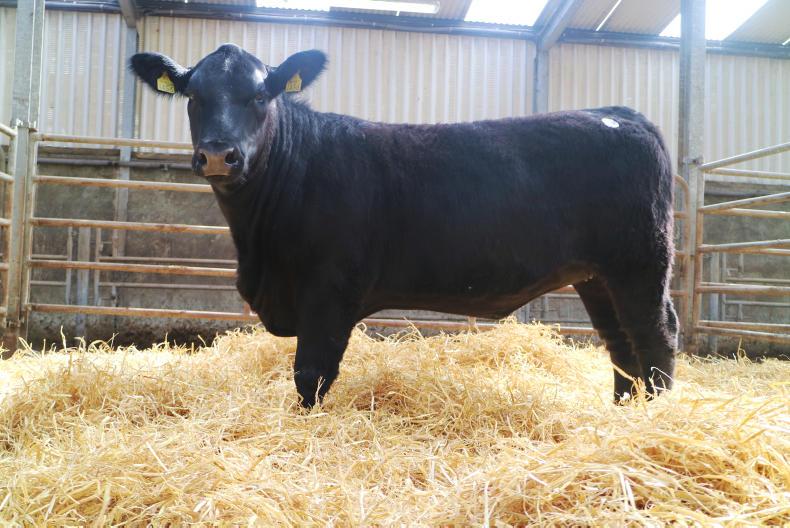
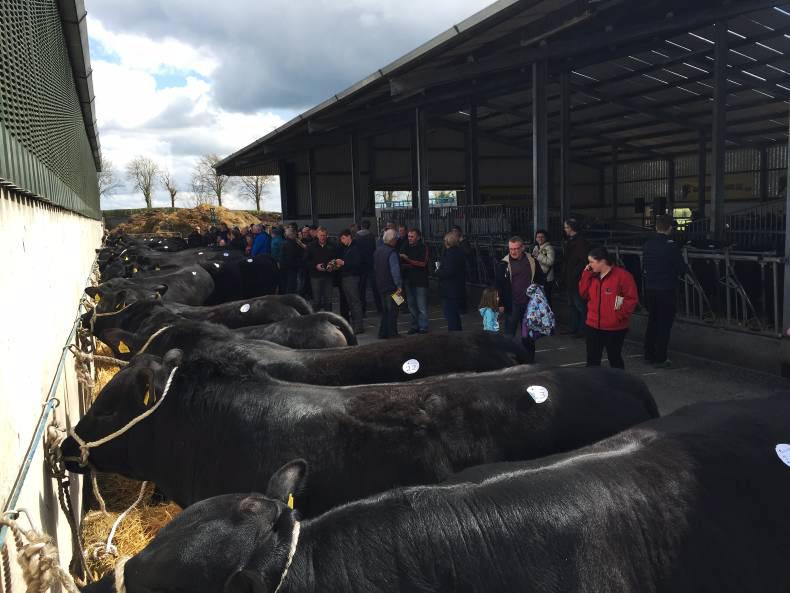
SHARING OPTIONS